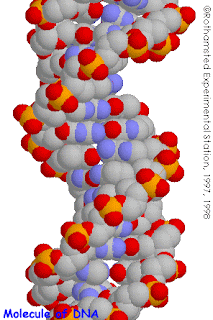 For some time now I have found myself wrestling (in prayer and in my own mind) with the question of how we can best help people move in their journey of faith, in particular from the place of not knowing Christ to discovering a relationship with him through faith.
For some time now I have found myself wrestling (in prayer and in my own mind) with the question of how we can best help people move in their journey of faith, in particular from the place of not knowing Christ to discovering a relationship with him through faith.The Scriptures tell us that "faith comes from hearing the message, and the message is heard through the word of Christ." [Romans 10:17] This statement by Paul comes in the context of his own wrestling in prayer over the salvation of his own people - the Israelites, although as he states, in God's eyes there is no difference between Jew and Gentile in terms of their response to God - he blesses all who call upon him. But then he points out the issue ... how can they call upon him, or believe in him unless they hear the message, unless someone tells them the good news.
I believe that this is the way faith works - ultimately God has called us to be an expression of the good news in Jesus Christ. We need both words and deeds - our testimony about the reality of Jesus in us (the hope of glory), is then reinforced by the evidence of a changed life. The characteristics of that changed life are multi-faceted, it is a life increasingly shaped by the teaching of Jesus as we read in the gospels, for example within the sermon on the mount. I believe that when these characteristics are evident in our lives, when we serve one another out of love, then opportunities are more likely to arise to give the reason for the hope that is within us.
But there comes a point for most people, when they need to hear the truth of the gospel of the kingdom put into words. We do not have a weekly corporate gathering where they can come and visit (should they want to). It is not easy for a seeker to just come and join us in our home churches necessarily (it depends upon the individual). So I believe we need some "middle space" - environments that are relatively 'safe' that allow the issues of faith to be discussed and reflected upon without pressure. I for one, am looking for opportunities and ways in which we can provide this to help people move in their faith journey.
What does that mean for you? Paul tells us in Ephesians that God gave some to be evangelists - both to do the work of evangelism as well as to equip the rest of the body to share Christ. We are not all called to an evangelistic focus, but some are. All of us are called to be willing to 'bear witness', in other words to talk about our experience and knowledge of Jesus Christ. For that, I believe it is incumbent upon us all to build friendships with people who do not know Jesus yet, which means spending time with them (in their world to some extent). The heart of it is that like God, we treat all people the same, not trying to determine whether or not they are 'true Christians', but looking to serve them because they are 'true people'. Out of this, and our prayers, will come opportunities to simply be real about ourselves and our faith.
For any of you who sense a greater desire to help people find Christ - perhaps this preoccupies your thinking, your prayers or you find a natural affinity with those outside the church - I would love for us to get together to talk, pray and dream about how we might serve God and others. Please email me, respond to this posting or call me. This is not a call for those who have it all together, you just might be the only person there! But simply for those wishing to grow in this ministry.
"How beautiful are the feet of those who bring good news!" [Romans 10:15]
Mike.









